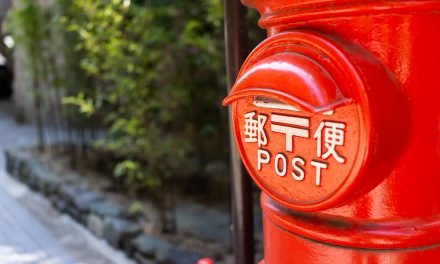
What’s expected in Japan Post privatisation plan?
Japan may announce next week its privatisation plans for Japan Post, the enormous state-owned financial conglomerate, reports Reuters. The plan, the symbol of former prime minister Junichiro Koizumi’s market-friendly reforms, was put on hold after the Democratic Party-led government took power last year.
Postal service operator Japan Post provides retail banking and insurance services through its 24,000 post offices. With financial assets of about 300 trillion yen ($3.4 trillion) — more than France’s GDP — it is Japan’s largest financial institution. That means even small changes in its portfolio or business strategy can sway financial markets and the financial industry.
It is also one of Japan’s largest companies, with 240,000 employees and annual revenue of 20 trillion yen.
With the profitability of its mail service likely to slide due to increased use of e-mail and Japan’s shrinking population, Japan Post’s financial services are considered the golden goose.
Currently, the group has one stock-holding company and four subsidiary businesses focusing on banking, insurance, deliveries and post office services.
What is its investment portfolio like?
About three-quarters of the funds of its two financial arms is invested in Japanese government bonds, making the group the largest single JGB holder with about 33 percent of the market.
Most of the remainder goes to other bonds and loans, and it holds a very small amount of shares and foreign currency assets.
But a government report has said it is unrealistic for the behemoth to make a big change to its portfolio in a short time.
Japan Post could start reducing its JGB holdings in the future but it will likely move very cautiously as selling JGBs could rattle the market when the national debt is nearing 200 percent of gross domestic product.
Banking Minister Shizuka Kamei has said that he wants Japan Post to diversify and that it could buy more U.S. Treasuries, but he said on Thursday its money is important for the stability of the domestic bond market.
Japan Post tried to expand its lending business after the government began its 10-year privatisation process in 2007, but its efforts fell through and it continued to buy JGBs.
In the short-term, the privatisation plan is unlikely to have any impact on its investment strategy. However, the longer-term outlook is unclear as much would depend on how much control the government retains.
So will the government privatise it?
Not as fully as envisaged by the former Liberal Democratic Party government.
The LDP planned to spin off the two financial arms, Japan Post Bank and Japan Post Insurance, and sell two-thirds of the holding company by 2017.
A government guarantee on Japan Post deposits and insurance was lifted, and a new management team has taken charge.
Prime Minister Yukio Hatoyama, whose Democratic Party ousted the LDP in an election last August, froze the privatisation on the grounds that it ignored the needs of consumers.
The government plans to merge deliveries and post office services into the parent company and sell shares in it as well as in its two financial subsidiaries — Japan Post Bank and Japan Post Insurance.
Hatoyama’s party is considering selling possibly up to two-thirds of the shares in the three firms to list them on stock exchanges. By retaining one-third of the shares, it would allow the government to veto any major changes.
But the People’s New Party (PNP), a tiny coalition partner that has strong backing from local post office chiefs, is reluctant and has called for the government to retain stake of 50 percent or more.
Kamei, who heads the PNP, has said the government will make its decision by March.
How will Japan’s financial industry be affected?
With the privatisation plans still up in the air, the main concern for the financial industry at the moment is whether the government raises the limit on deposits.
Japan Post Bank has long had a limit of 10 m yen per person. The government could raise that to support Japan Post but it would draw heavy criticism from private banks, which complain that Japan Post still enjoys an implicit government guarantee.












